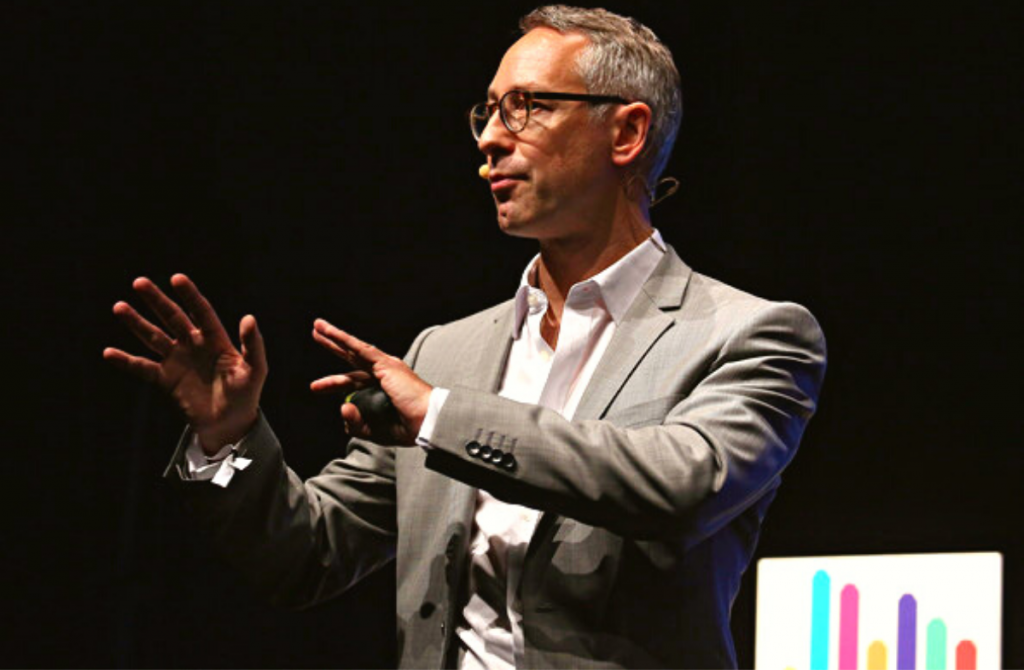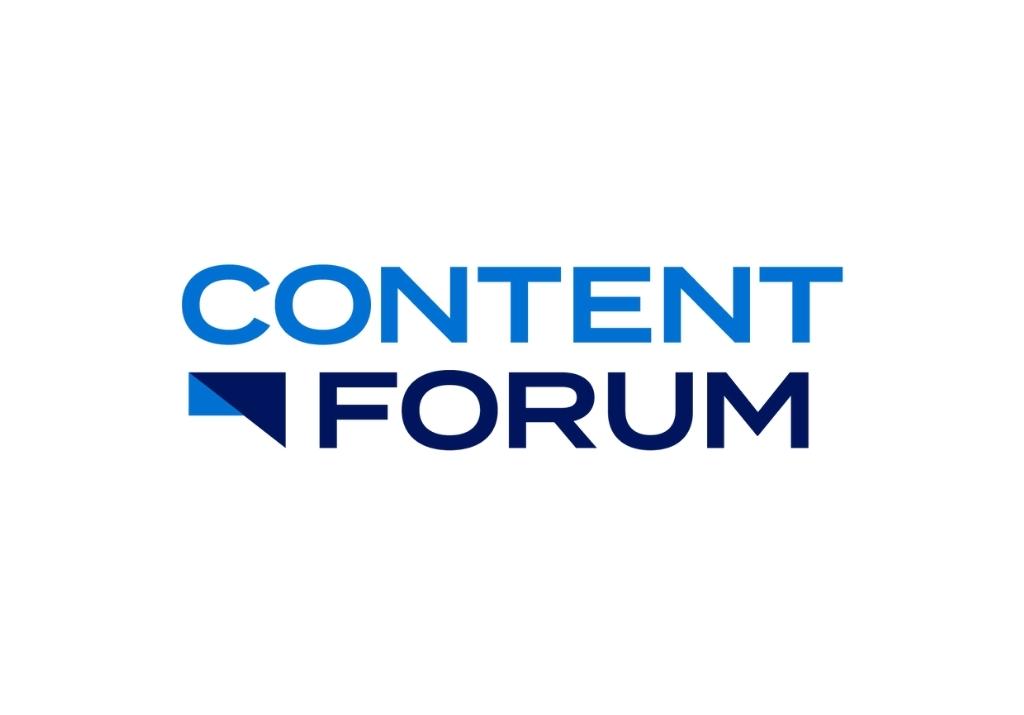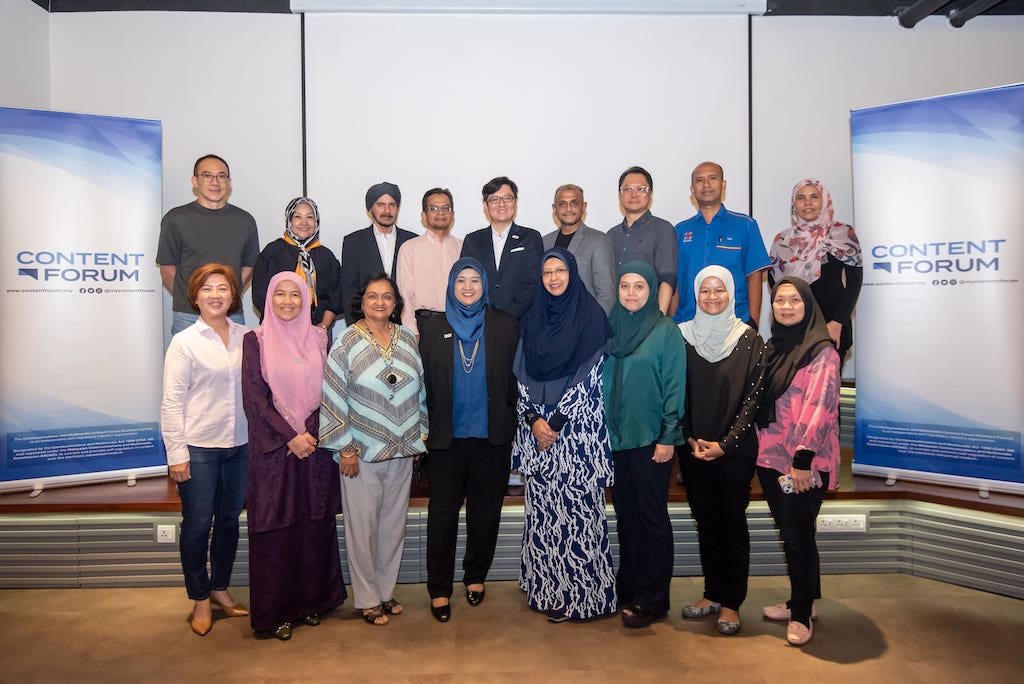Marketing & Media magazine in Prague is on the Epica Awards jury. In the run-up to the magazine’s annual conference, Editor Jakub Křešnička interviews Epica Awards editorial director Mark Tungate about the awards and the future of the press.
The Forum Media Conference takes place in Prague on November 11 2021. Tungate’s speech will be an update of his book “Media Monoliths: How Great Media Brands Thrive and Survive”.
Last time we spoke you mentioned you can do 70 push-ups thanks to the Nike “pandemic campaign”. Are you up to 140 now a year after?
Well, I usually swim for exercise and with the swimming pool closed, I was a bit frustrated. When the Nike ad showed athletes exercising in their hallways and living rooms, I thought: “I’m just being lazy – there are plenty of ways to exercise.”
I started going for a run and then doing push-ups in my hallway. I can actually do a hundred now, but the last ten are agony. Still, not bad for a 54-year-old, right?
Are there any other campaigns that made you change your lifestyle? How about the “Moldy Whoppers” that won big in last year’s Epica Awards?
That was a terrific campaign – but as you can tell from the answer above, I try to stay healthy so I tend to avoid burgers in general, even when they’re 100 per cent natural. Actually the first campaign that changed my life was one for Levi’s by BBH in the 1980s. It was so well shot that it got me thinking about advertising as an art form. Many years later, I began writing about advertising for a living.
What were your favorite winners and campaigns?
Oh, so many! I thought the agency Rethink’s all-red jigsaw puzzle for Heinz Ketchup, which won the Design Grand Prix, was genius. It was funny, on-brand and useful all at the same time.
You don’t see that very often. And as I love both illustration and reading, the Gold winner “Travel While Reading,” from the NEW! Agency in Lithuania, for the Eureka bookstore, went straight to my heart.
What did the competition show about the marketing and PR world during these uncertain times and its reaction to pandemic?
It showed that nothing can keep creativity down. Agencies of all kinds did a fantastic job, whether they were supporting medical staff, promoting social distancing or keeping brands and businesses in touch with customers.
On a smaller scale, we got quite a few entries despite the pandemic, so I guess it proves that agencies still like to celebrate creativity and be praised for their work, even in the most extreme circumstances.
What are you expecting from this year’s Epica Awards?
I think we’re going to see a little more normality as we pass into what some media have been calling the “post-Covid” period. Of course we’re not post-Covid at all – but we’re learning to deal with it. Getting vaccinated certainly allows you to set anxiety aside for a while.
Since last year a lot has changed: society is much more “open” and normal. So there may be a tentatively optimistic tone to the work. One thing I’m certain of is that the trend towards digital and social entries and away from traditional film and print will continue.
There is still a category about Covid-19 communication and there has been a lot of controversy around campaigns done by governments – what do you think about them? Which ones did you like and why?
We didn’t create the category to attract governmental advertising – although one Gold winner was from the government of the Canary Islands! It was more about how agencies were using their creativity to help people and brands navigate the situation.
My favorite was probably Buzzman’s long copy campaign “Order From McDonald’s” – the client was Burger King! They were urging people to support ALL restaurants by ordering takeaway during the lockdown. I thought it was a witty and generous idea.
One of your books – and your topic for the conference – is about Media Monoliths and the evolution of media. Lots of people say last year brought on changes that would otherwise take years, sometimes even decades. How did the last 18 months change the media world in your view?
Well, all the data shows that Netflix and streaming platforms in general have been the big winners of the pandemic era. I can vouch for that, because with my son I watched tons of shows and films on Netflix. I also signed him up to Disney Plus.
Social media have also been a source of entertainment, as well as giving a sense of community. Newspapers and other information platforms have seen an increase in digital subscriptions, because people need to know what’s going on. Some fashion and lifestyle magazines have seen an increase as well – based on the need to escape reality.
I actually subscribed to two travel magazines during the pandemic: Condé Nast Traveller and Suitcase. Also – is Zoom a medium? If so, it was another big winner during lockdown, along with similar platforms like Google Meet and Teams. Frankly I’m so over video calls that I’ve gone back to using the phone.
What are the most interesting trends we should watch for in the future?
Interestingly, one of the points I underlined in Media Monoliths, which is not a new book, is that big print names like The New York Times or Vogue would inevitably evolve into 360 degree media brands during the digital era. That is proving to be the case.
Videos, webinars, e-commerce and events – when we can go out – are saving the legacy print publishers. Plus the print media have increasingly become spoken media: podcasts, already popular before the pandemic, performed strongly during the lockdowns.
I mentioned Condé Nast earlier, and the company took the opportunity of the pandemic to merge several of its US and European editorial teams, creating global editors for some of its magazine brands. I think the fact that we’ve all been working remotely has encouraged media organizations to think globally, as it’s effectively erased borders.
Why would you need one editorial team in an office in London and another in New York? You just need people who are specialists in their field, working from home all around the world. Advertising agencies are thinking the same way. But a global structure could also mean redundancies as you no longer need two people doing similar jobs.
And what are the biggest threats for media brands? Has the pandemic brought some new ones?
Certainly the pandemic has accelerated the shift to digital, which means the decline of print media has speeded up. But as I’ve said many times before, I don’t think print will go away entirely. Newspapers are pretty much over, yes, but print magazines are becoming luxury items – and many premium advertisers still like that prestigious environment.
So I think initially we might see monthly magazines becoming quarterly, or even collectable annual publications. Print is also a way of standing out in a sea of digital. In fact, analogue in general may have a future. To give a small personal example – a 16-year-old podcaster in the United States recently asked me for an interview by sending me a handwritten letter. It got my attention far more effectively than an email.
Among other media, traditional TV has been hit by streaming, and radio has been impacted by podcasts.
There has been a surge of popularity for independent newsletters and platforms like Substack – how will these trends affect the press?
Well, the mainstream press has been underpaying journalists for years, so it’s natural that writers might want to build their own brands through platforms like Substack or Medium – I occasionally write for Medium myself and get quite a kick out of the freedom it offers.
Plus I think people seek personalities they identify with and who share their worldview. The trick is to build a personal brand through a combination of articles, newsletters and a social media community.
For big media brands, newsletters are a way of building loyalty. But I don’t think independent newsletters are necessarily going to replace those: I think they’ll co-exist as part of the sea of information we all dip in to from time to time.
MARKETING Magazine is not responsible for the content of external sites.









